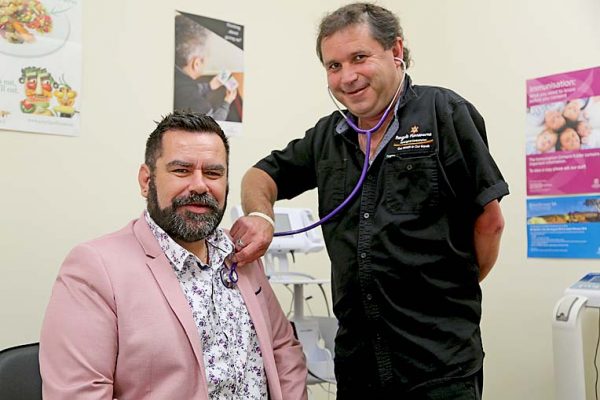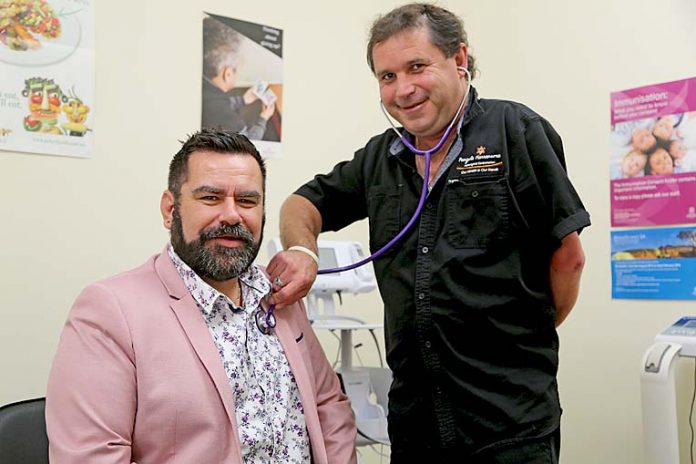
EDUCATION and regular health checks remain the two key focuses of Pangula Mannamurna in its bid to combat heart-related diseases among the Aboriginal and Torres Strait Islander population.
Pangula chief executive Andrew Birtwistle-Smith said health checks play an integral role in the health and wellbeing of all South East residents.
It comes as a new federal health initiative came into effect last month, with Aboriginal and Torres Strait Islanders over the age of 30 now eligible for a medicare-funded heart health check to learn their risk of heart attack and stroke within the next five years.
The new system is also available for Australians over the age of 45.
According to Mr Birtwistle-Smith, Aboriginal and Torres Strait Islanders faced a number of contributing factors which can lead to heart disease.
“It is crucial we all aim to educate ourselves on those risks and work towards strengthening health and well being across a range of areas, such as weight, diet and physical activity,” he said.
“It is a significant move to now have Aboriginal people over the age of 30 have their heart check as early intervention.”
Currently offering education as well as review and management through clinic appointments, the Pangula leader encouraged residents who believe they may be at risk to undertake a health check.
“Heart disease covers many heart conditions and we here at Pangula, in servicing the Limestone Coast, do manage a high number of clients with different degrees of heart disease,” Mr Birtwistle-Smith said.
“Habits such as smoking, physical inactivity, poor nutrition, obesity and high blood pressure all have a large impact on the number of Aboriginal people with heart disease.”
Some of the most common heart conditions found in the Indigenous community include coronary heart disease, heart failure and stroke.
“It is critical that when we look at Aboriginal health, either as individual clients or broader community health, we take a holistic approach whereby we do not just concentrate on the
one common issue or factor in people’s lives,” Mr Birtwistle-Smith said.
“There are a number of commonalities around specific health issues, nationally, state and locally.
“One of those in particular is also diabetes.”
Getting on the front foot, Pangula recently reopened its gym facility, offering sessions to support and encourage physical activity.
It comes as the health facility develops a new strategic direction for the next three to five years, which will involve community engagement.
Next month Pangula will hold its Aboriginal Children’s Health Day, where Indigenous local primary school students will attend Pangula for the day to undertake cultural learning and activities.








